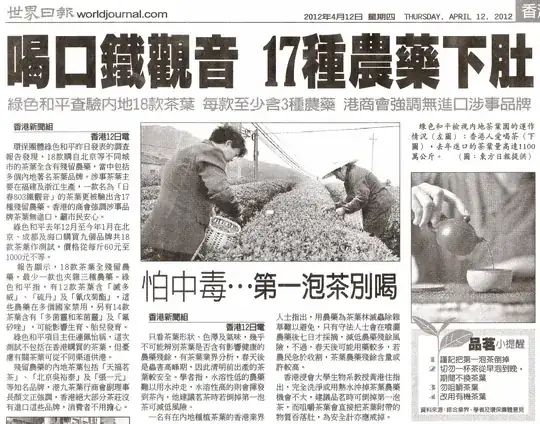I've been told that I should be rinsing Chinese tea with the boiled water before the first full infusion intended for drinking.
I make the occasional very-expensive tea from Taiwan and I feel it is a waste to throw away a first pot simply for "rinsing". However, my mother-in-law insists it is correct to rinse the tea first :-)
Is this practice of rinsing always advisable, or are there specific cases or kinds of tea where rinsing is necessary? What are we trying to rinse away? Is the practice only for Chinese tea, or for other kinds of tea as well?
Looking for some enlightenment from some tea experts. Thank you!
Update:
Since I asked the question, my mother-in-law came across a newspaper article, in Chinese, describing pesticides found on some teas from China, and so it is advisable to rinse before consuming.
Here's a scan I made of the article:

Something in English...
Essentially, the article references a 2012 report by Greenpeace. You can read a press release about the report, and here's a link to the report itself: Pesticides: Hidden Ingredients in Chinese Tea Report (PDF). Press release summary:
A Greenpeace investigation has found pesticides banned for use on tea in the products marketed by some of China's top tea companies. Some of the firms, which include China Tea, Tenfu Tea and China Tea King, export tea products to Japan, the US and Europe.
For that reason, I accepted the answer below which suggests rinsing for reduction of pesticides.
Of course, I don't think I'd want to drink a tea with 17 kinds of pesticides present, even if rinsed! Caveat emptor ... I plan to ask more questions when I buy my tea.